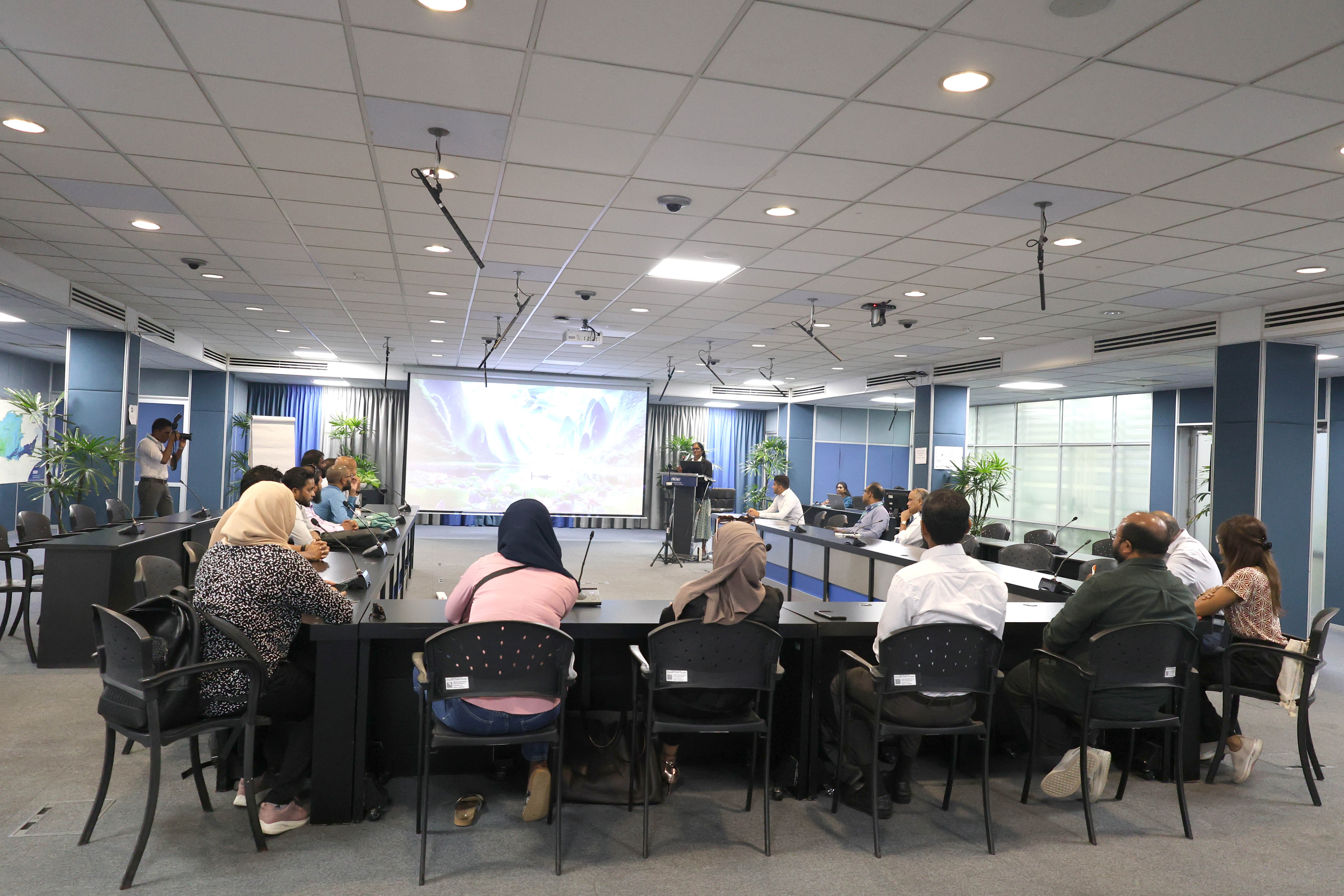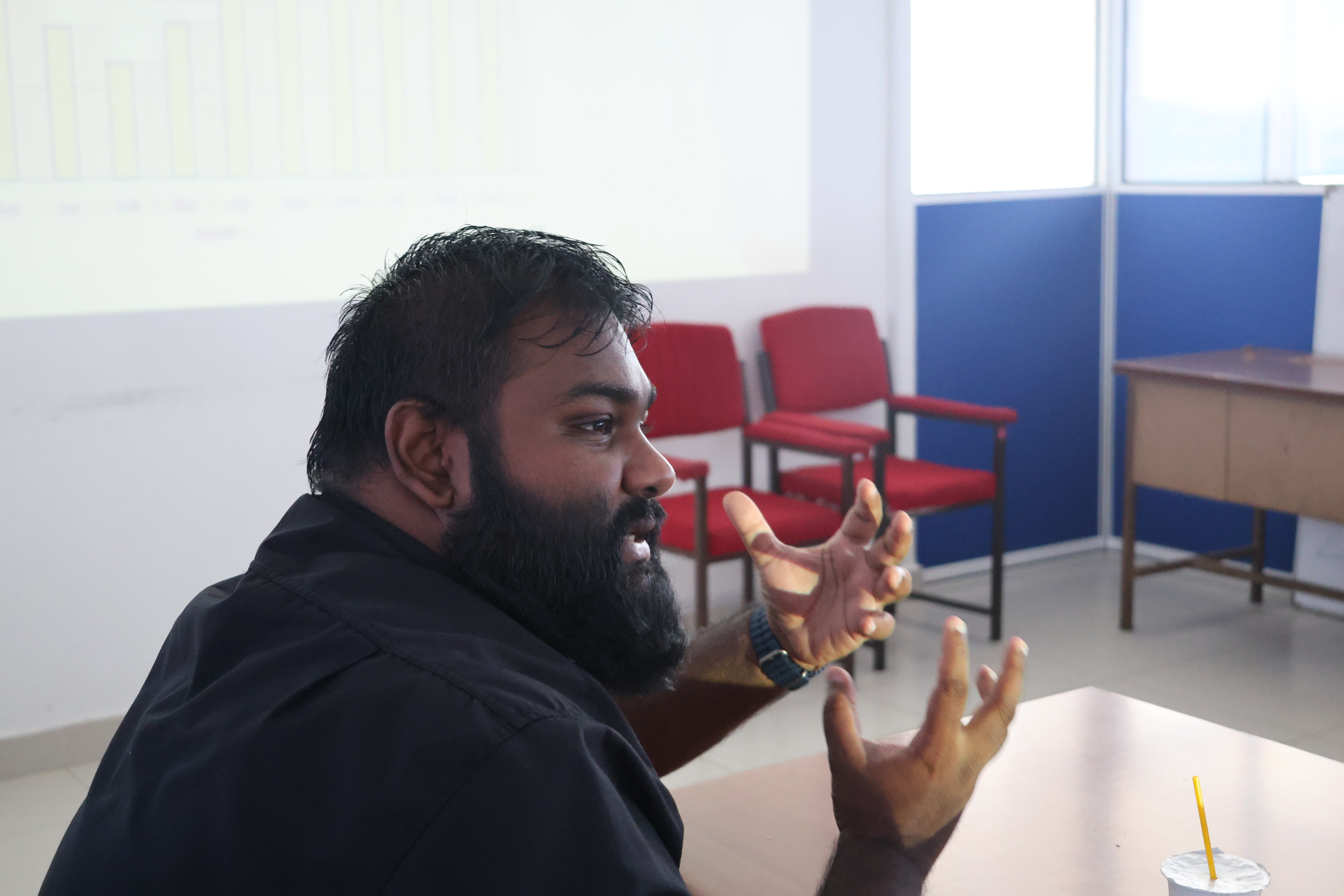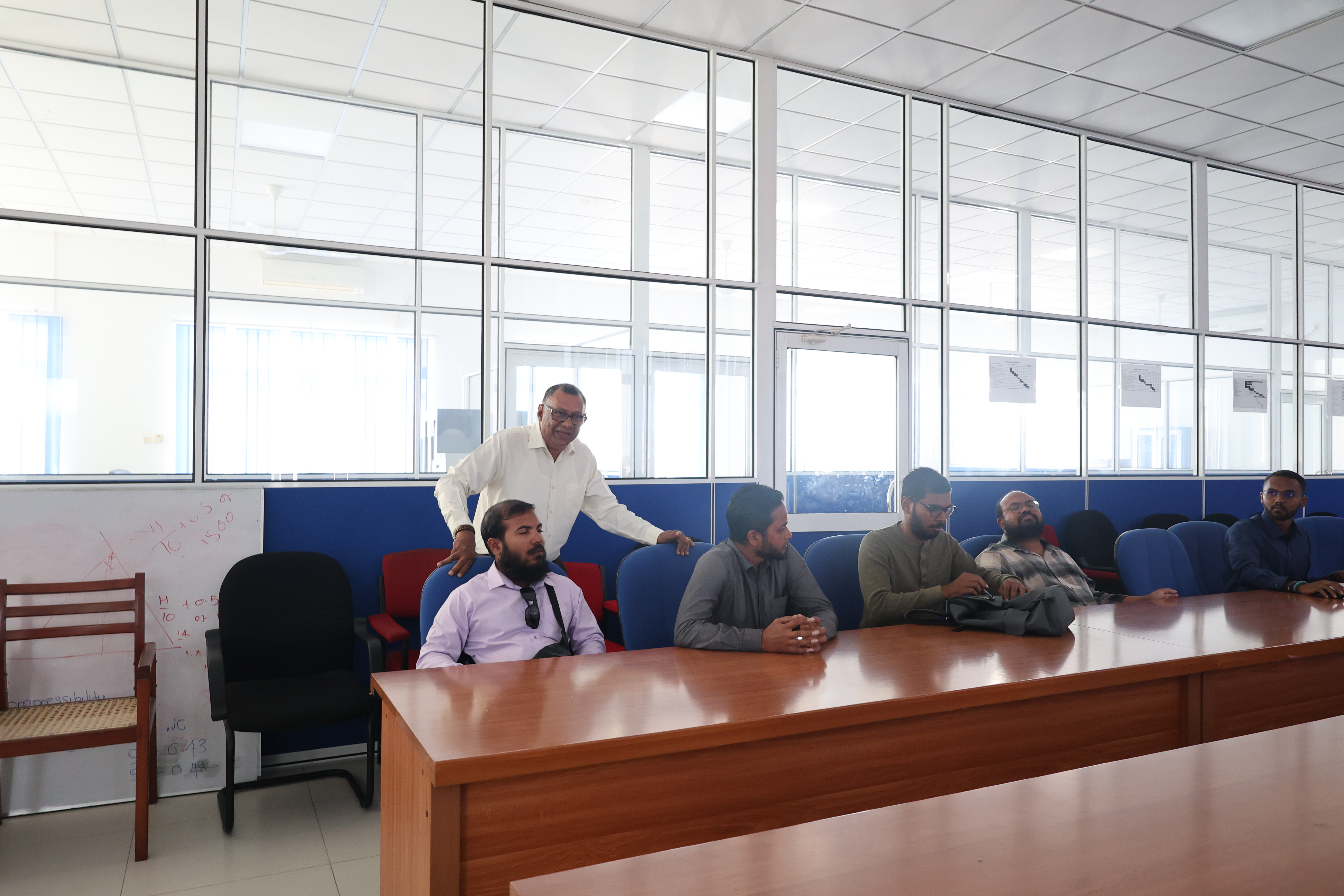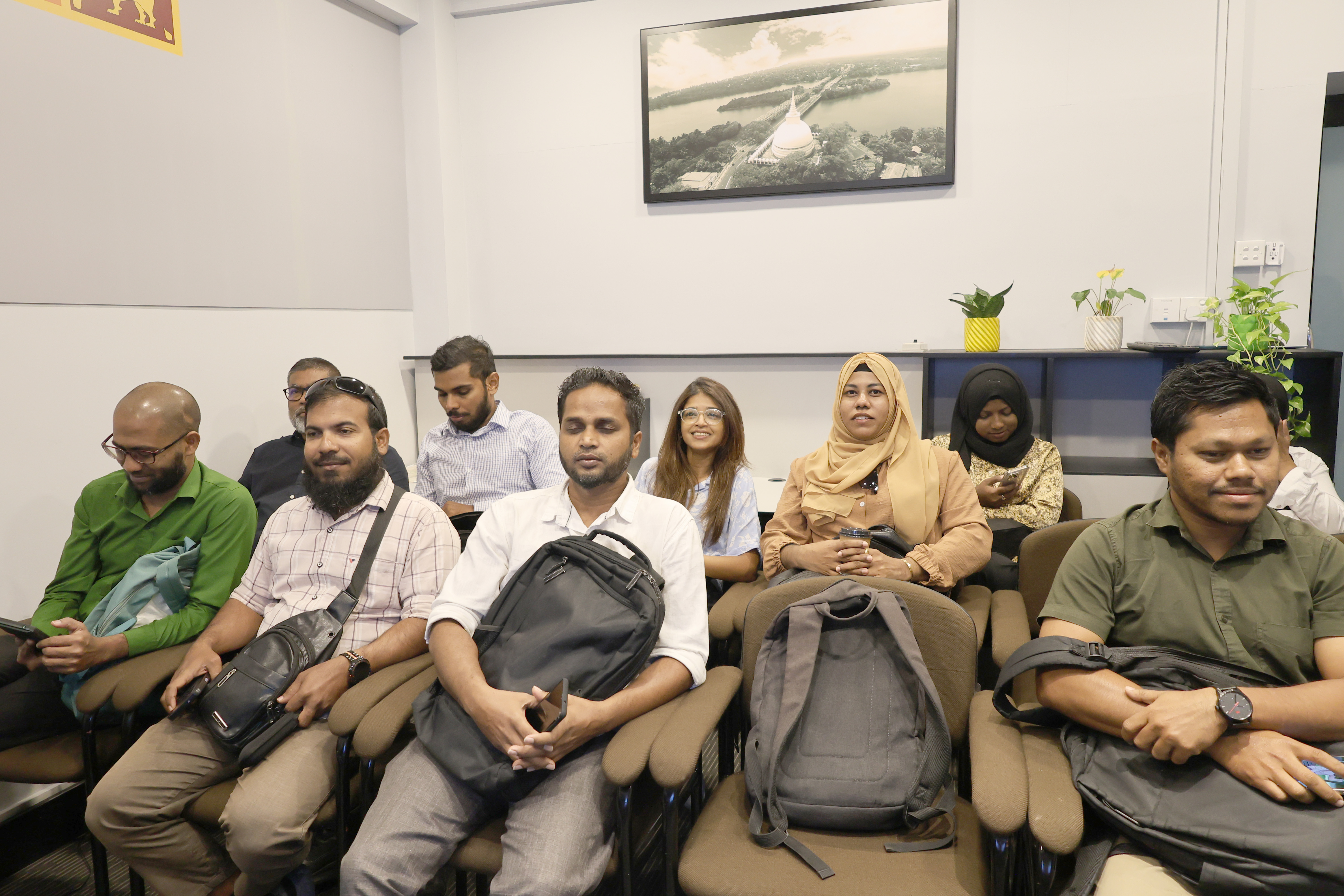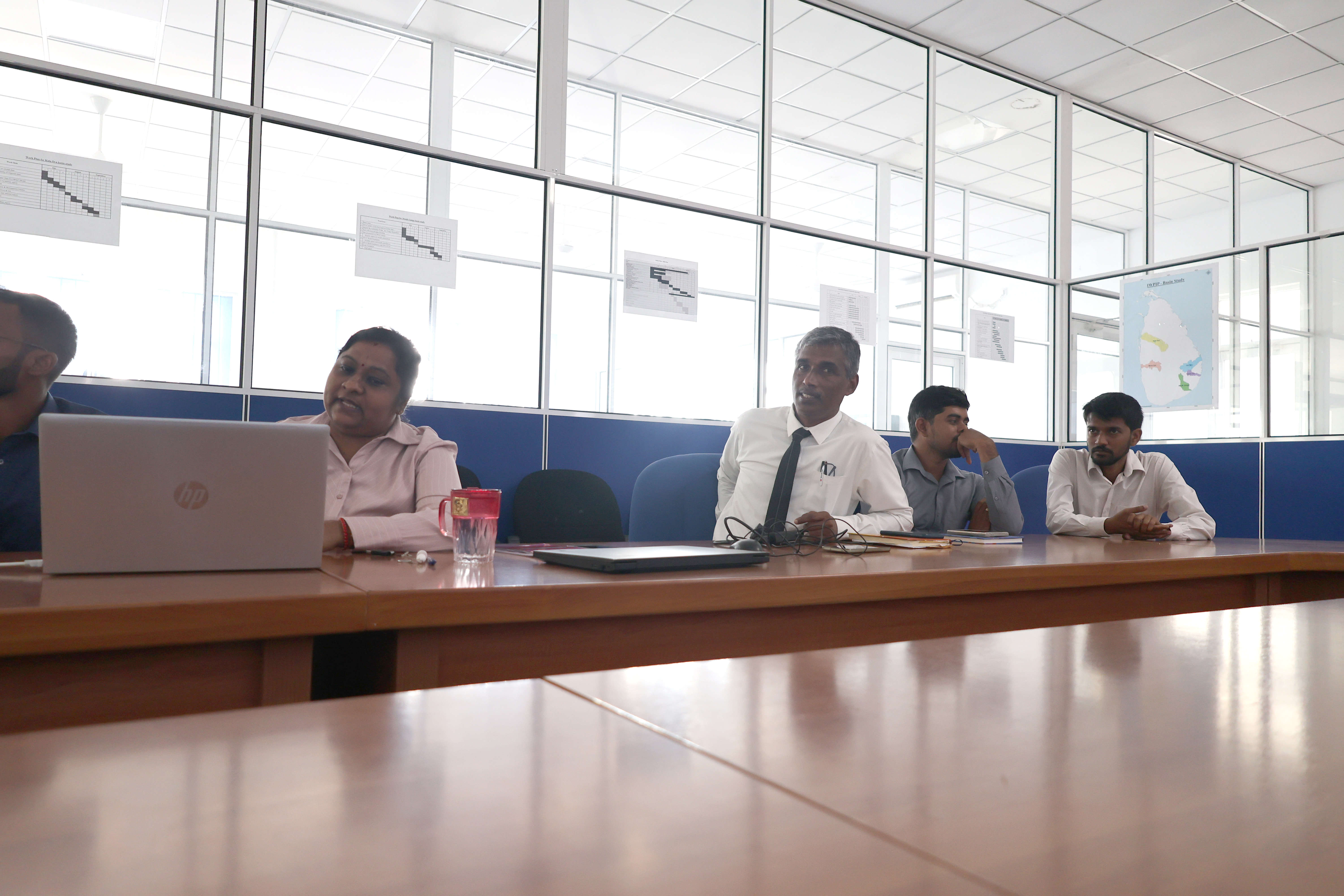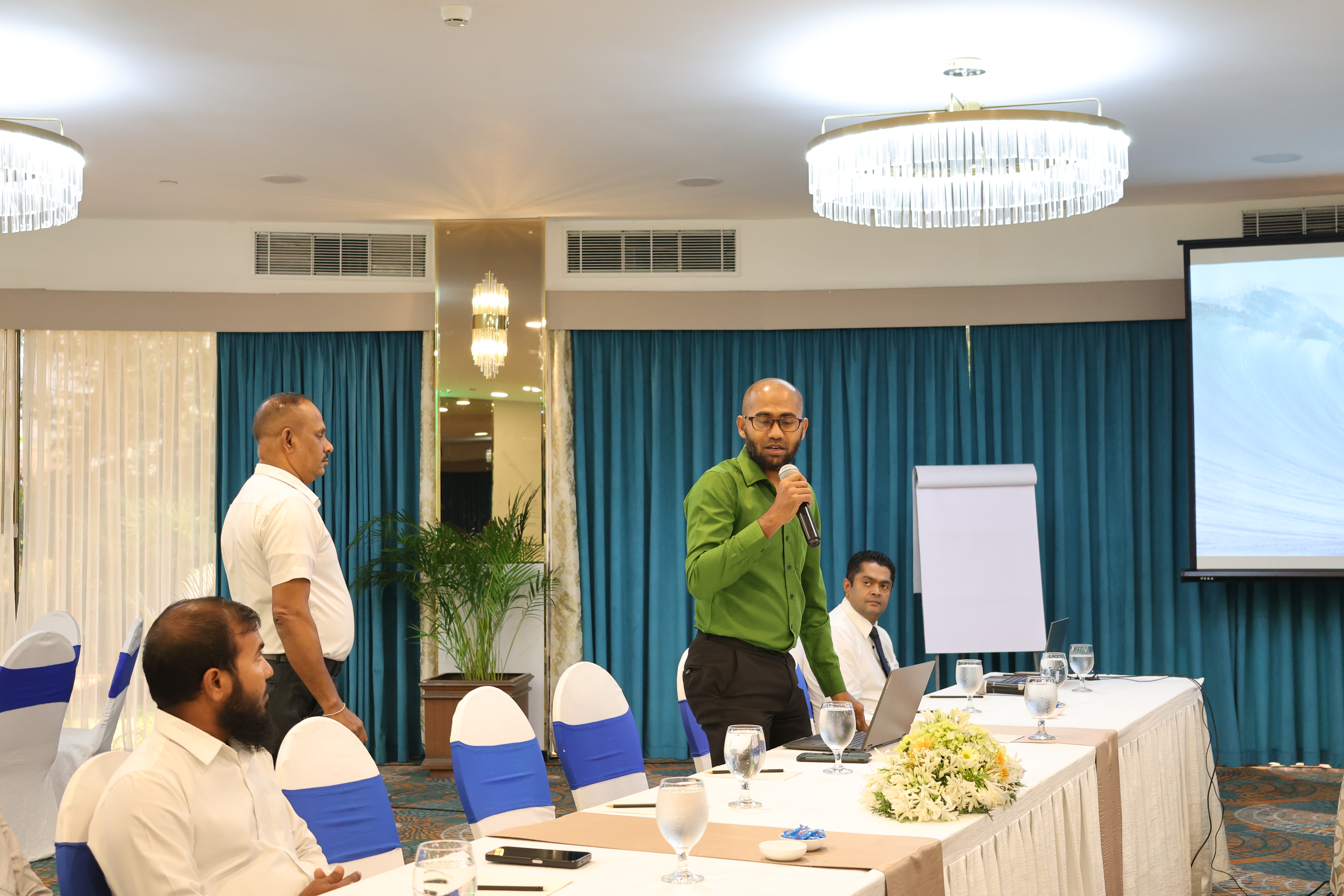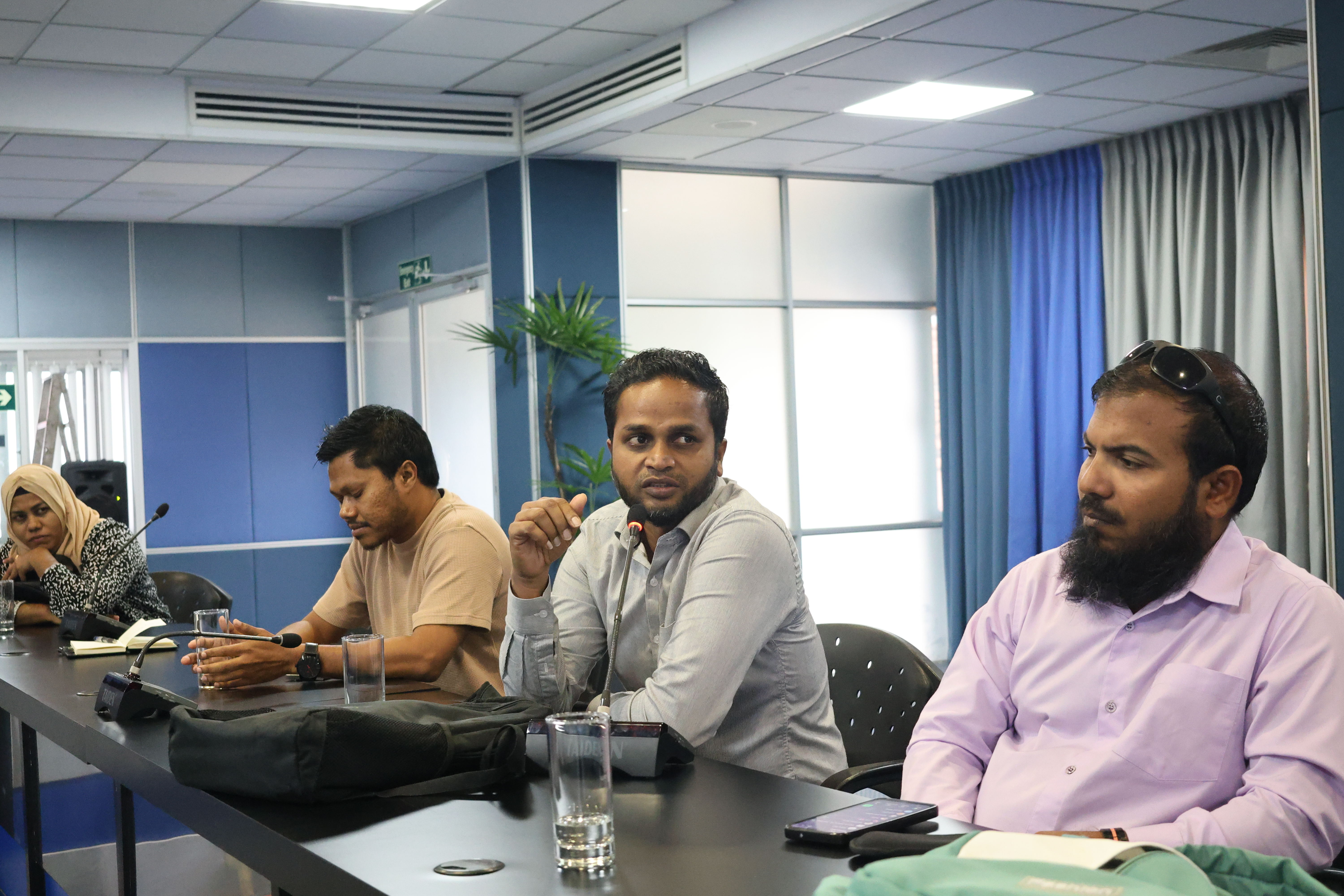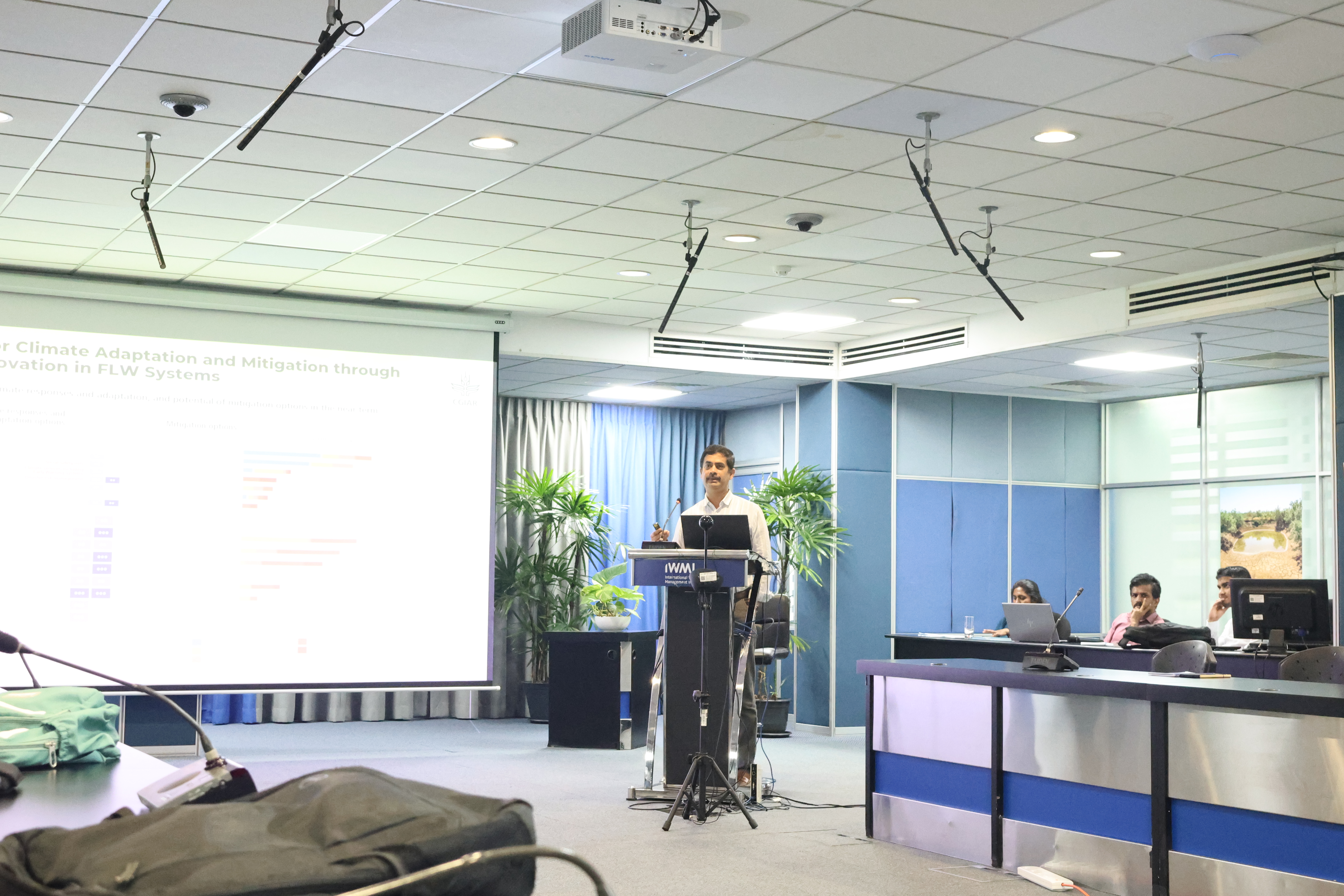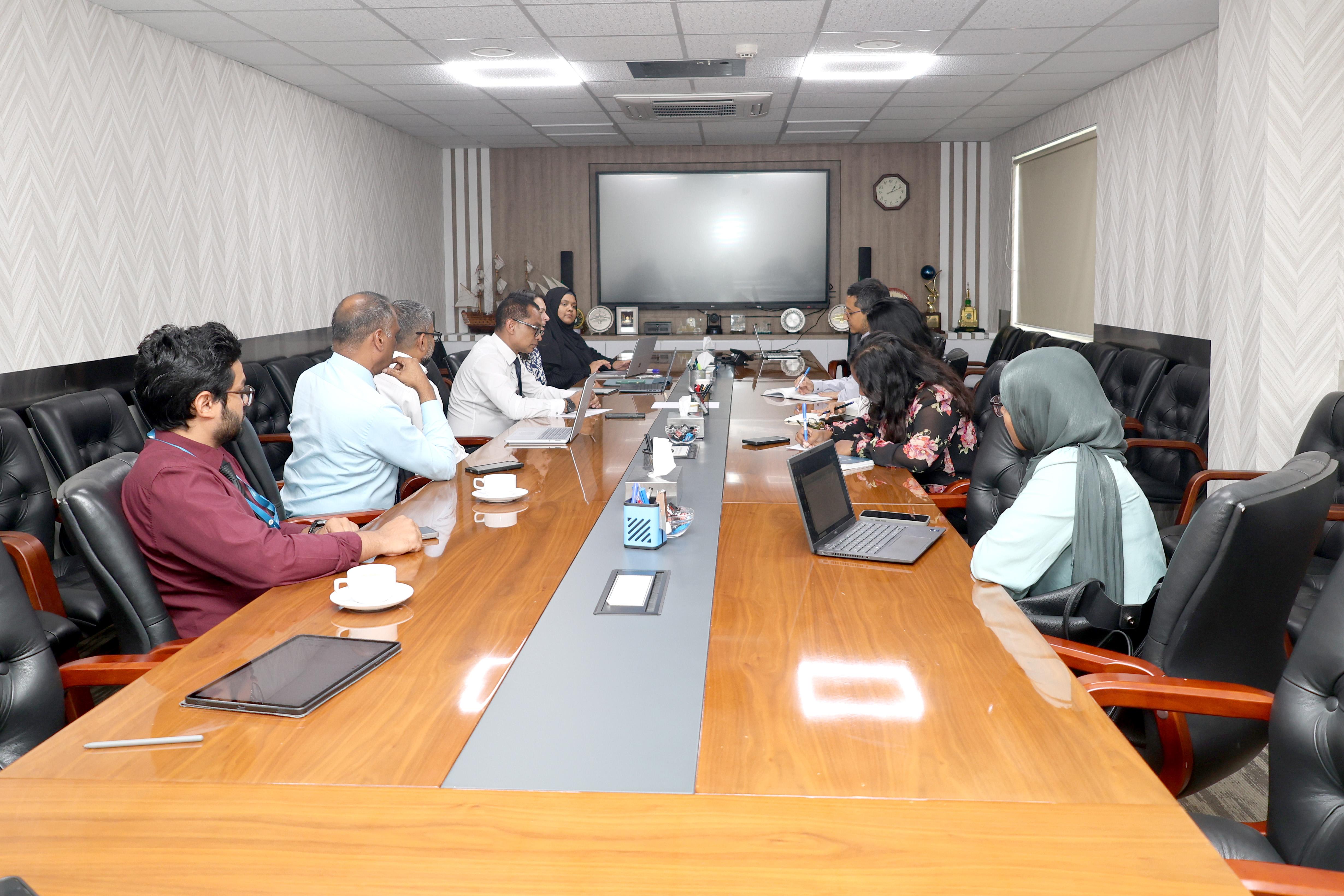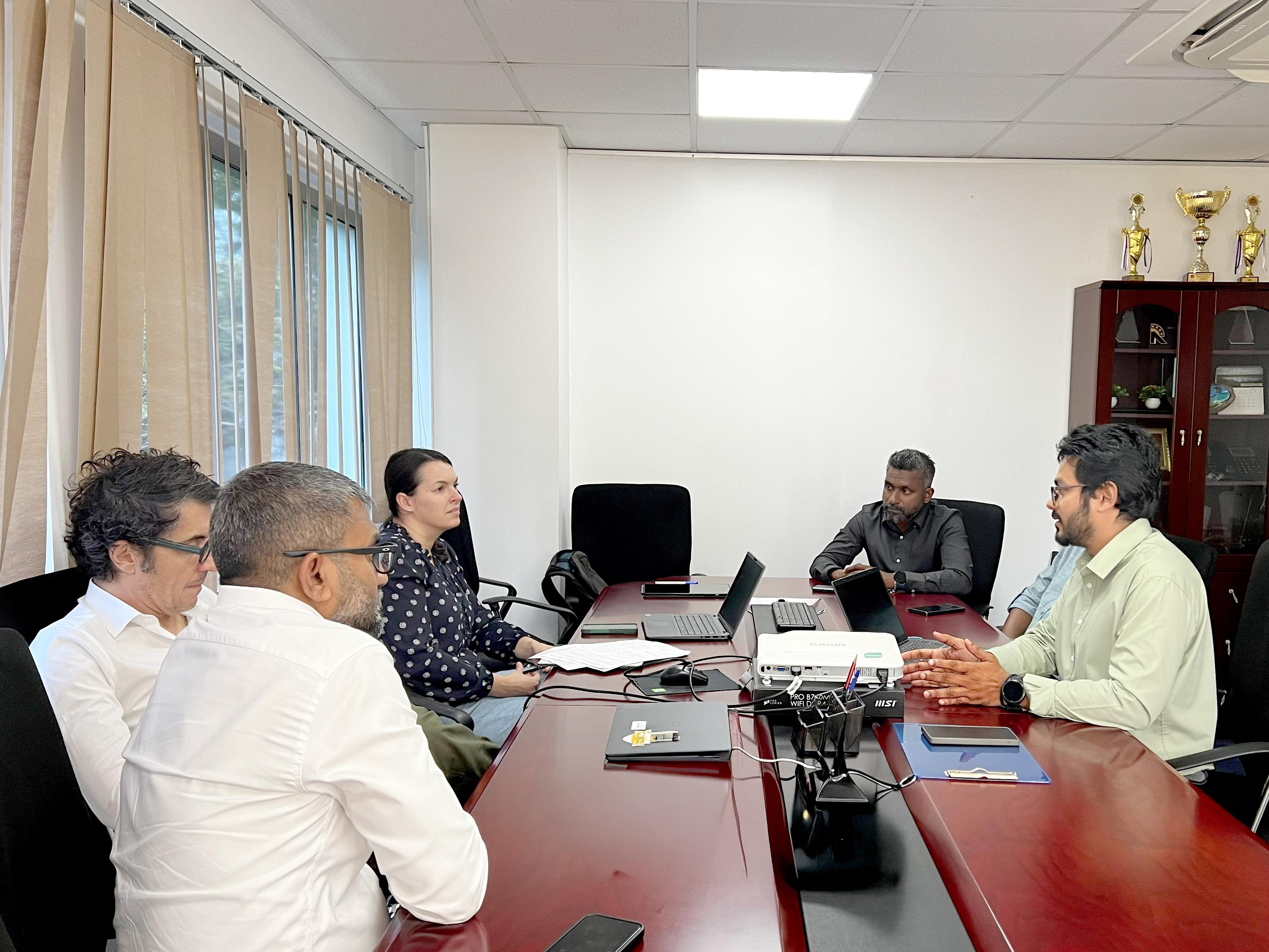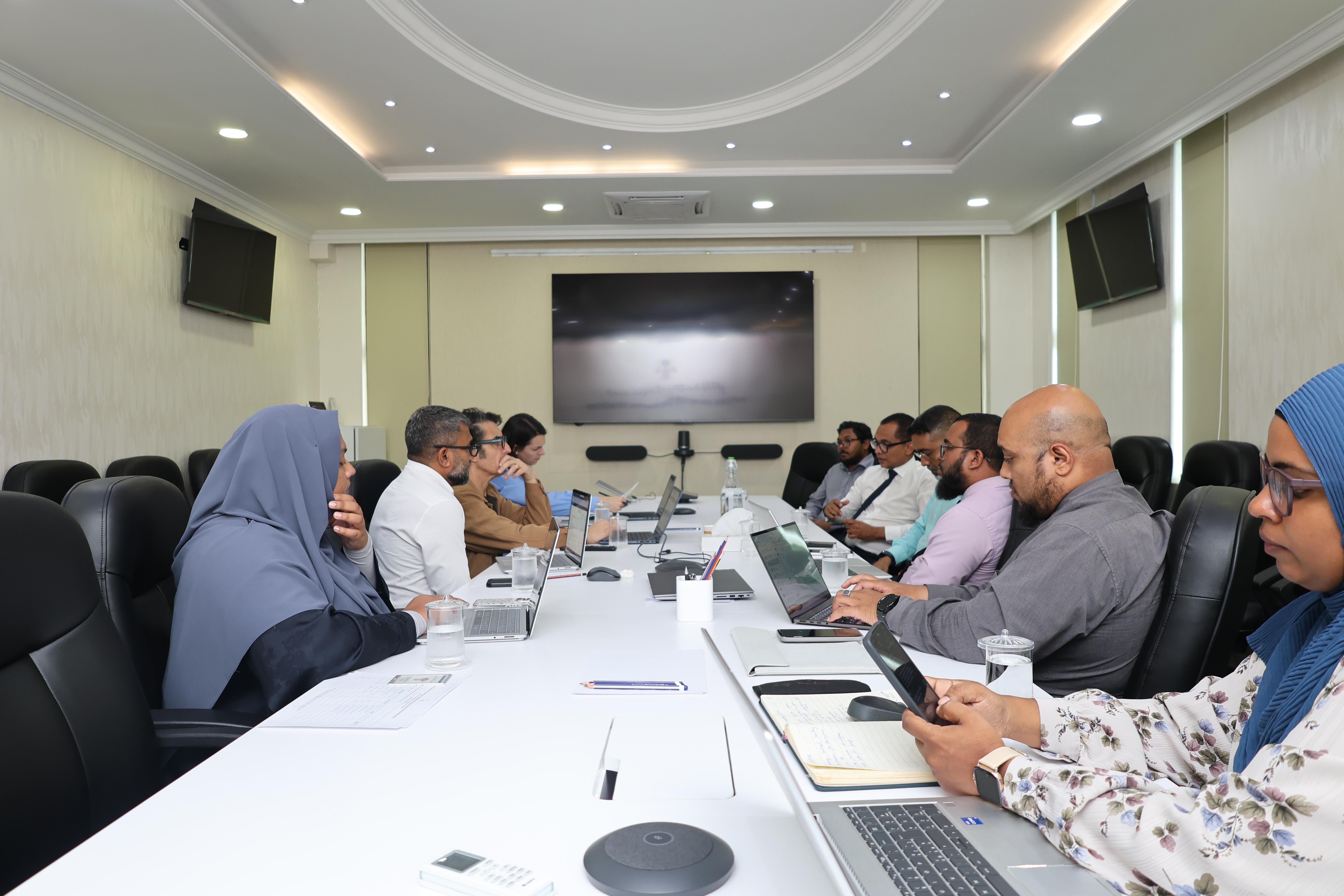News
Capacity-Building Visit to Sri Lanka to Enhance Climate Change and Disaster Response
20 February 2025

A delegation of Maldivian
government officials led by the D’MADD project concluded a five-day
capacity-building and knowledge exchange visit to Sri Lanka from February 16 to
20, 2025. This initiative follows agreements made during the South Asia
Hydrological Forum (SAHF) in February 2024 and further detailed during the
Technical Assistance (TA) Mission in November 2024. The initiative complements
the D’MADD project’s pilot program to establish a Multi-Hazard Early Warning
System platform in the island city of Fuvahmulah in the Maldives.
The Delegation included
participants, key stakeholders, and beneficiaries of the pilot, including the
D’MADD project, the National Disaster Management Authority, the Maldives
Meteorological Service, the Ministry of Tourism and Environment, the National
Centre for Information Technology, Fuvahmulah City Council and the Ministry of
Finance and Planning.
The visit aimed to equip
Maldivian officials with the skills and knowledge necessary to manage climate
change impacts and disasters at the local level. The delegation toured various
Sri Lankan government agencies' Emergency Operations Centres, including the
Irrigation Department, the National Building Research Organization (NBRO), and
the Disaster Management Centre. They also observed decision support systems
developed by the International Water Management Institute (IWMI) and those used
by the Kalutara and Matara District Secretariats, focusing on sub-national
level management.
Given the Maldives' fragile
ecological profile and low elevation, the nation is highly vulnerable to
natural hazards and extreme climate events. The economy, heavily reliant on
fisheries and nature-based tourism, faces significant threats from rising sea
levels, more frequent and severe storms, and enhanced beach erosion. These
challenges are compounded by the ongoing decentralization of power to local
councils, which limits the islands' ability to respond effectively to climate
change impacts and disasters.
Effective disaster response is
crucial for minimizing loss of life, property damage, and facilitating faster
recovery. Decision Support Systems (DSS) play a vital role by providing
data-driven insights that empower decision-makers to make informed strategic
choices. These systems include flood inundation maps, real-time evacuation
route planners, risk assessments, early warning systems for natural hazards,
and interactive dashboards displaying critical disaster information.
Officials from the Maldives
Meteorological Services, National Disaster Management Authority, Fuvahmulah
Island Council, Ministry of Tourism and Environment, Ministry of Homeland
Security and Technology, and the Ministry of Finance participated in the visit.
Highlights of the Visit:
- Training Session by the University of Moratuwa: On February 17, 2025, Professor Brig. Dr. Thiran de Silva shared insights on impact-based forecasting, Multi-Hazard Early Warning Systems, and Decision Support Systems.
- Visit to the National Building Research Organization: The NBRO team provided sessions on their Multi-Hazard Early Warning Systems and Decision Support Systems, including protocols for issuing early warnings for landslides.
- Visit to Kalutara District Secretariat: A knowledge-sharing session was held at the living lab, followed by a site visit to the Pahiyangala Cave to observe landslide mitigation measures.
- Visit to the International Water Management Institute: Sessions included climate information sharing, early warning platforms, and hydrological modeling.
- Visit the Irrigation Department: The team learned about the Emergency Operations Management and GIS tools used for early warning.
- Visit to the Disaster Management Centre: The delegation toured the EOC and learned about early warning issuance, emergency monitoring, and management.
This visit exposed real-world
implementations using digital technologies to build a more resilient Maldives
capable of effectively responding to the growing threats posed by climate
change and natural disasters.
